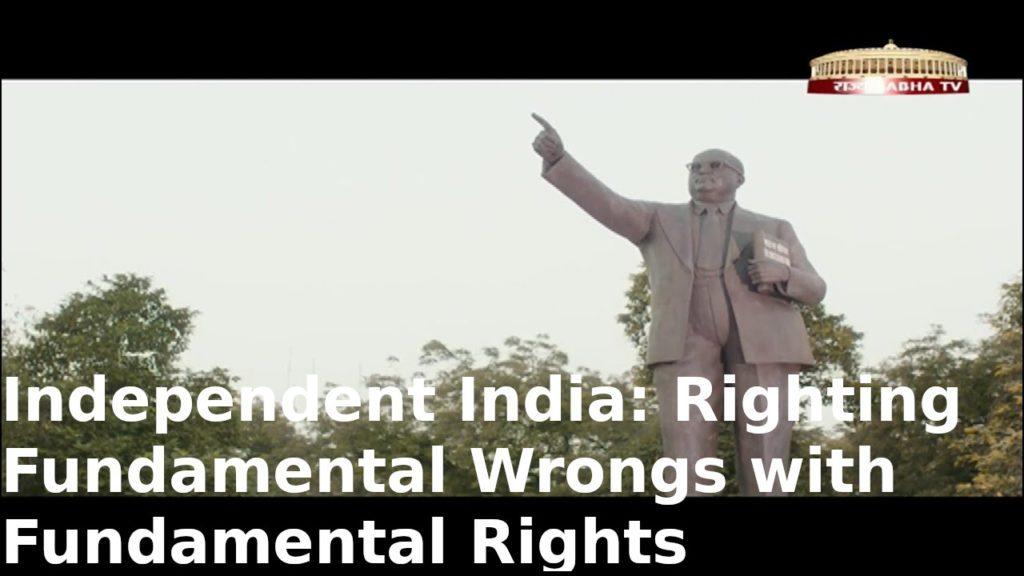Contents
Independent India: Righting Fundamental Wrongs with Fundamental Rights
The fundamental rights are enshrined in Part III of the Indian Constitution under Articles 12 to 35. These were borrowed from the US constitution (Bill of Rights). According to Dr. B R Ambedkar, it is the most criticized part of the Constitution. The numbers of Fundamental Rights are 6 in the present-day Constitution.
The fundamental rights are justifiable.
Other Videos in this series:
- Samvidhaan: The Making of the Constitution of India (Rajya Sabha TV)
- Independence: A Divided Legacy (Samvidhaan – Episode 2/10)
- Independent India: Righting Fundamental Wrongs with Fundamental Rights (Samvidhaan – Episode 3/10)
- People’s Rights, Principles of Governance and Duties (Samvidhaan – Episode 4/10)
- Strengthening The Weak: Minority, Women and Backward Rights (Samvidhaan – Episode 5/10)
- Whose Land is it?: Land Reforms and Acquisition (Samvidhaan – Episode 6/10)
- Link Language: Hindi or Hindustani (Samvidhaan – Episode 7/10)
- Federalism: Linking the States and the Centre (Samvidhaan – Episode 8/10)
- Three Pillars: Executive, Legislature, Judiciary (Samvidhaan – Episode 9/10)
- From Preamble to the Final Draft and beyond (Samvidhaan – Episode 10/10)
Indian Constitution (basics):
- Historical Background Of The Indian Constitution
- Making Of The Constitution
- Source Of The Indian Constitution
- Salient Features Of The Constitution
- Indian Constitution Parts and Articles.
- Parts of Indian Constitution: A brief overview.
- Schedules of Indian Constitution: A brief overview.
- Must-Know Articles of Indian Constitution: A brief overview.
- List of amendments to the Constitution of India
- Comparison of Indian Constitutional Scheme with other countries
Indian Constitution (Topics in the same order):
- The preamble of the Constitution
- Union And Its Territories
- Citizenship
- Fundamental Rights
- DPSP (Directive Principles of State Policy)
- Fundamental Duties
- President
- Vice President
- Prime Minister
- Council Of Ministers – State
- Attorney-General
- Parliament: Rajya Sabha
- Parliament: Lok Sabha
- Supreme Court of India: Powers and Jurisdiction
- Governor
- The Chief Minister & CoM
- State Legislature: High Court

